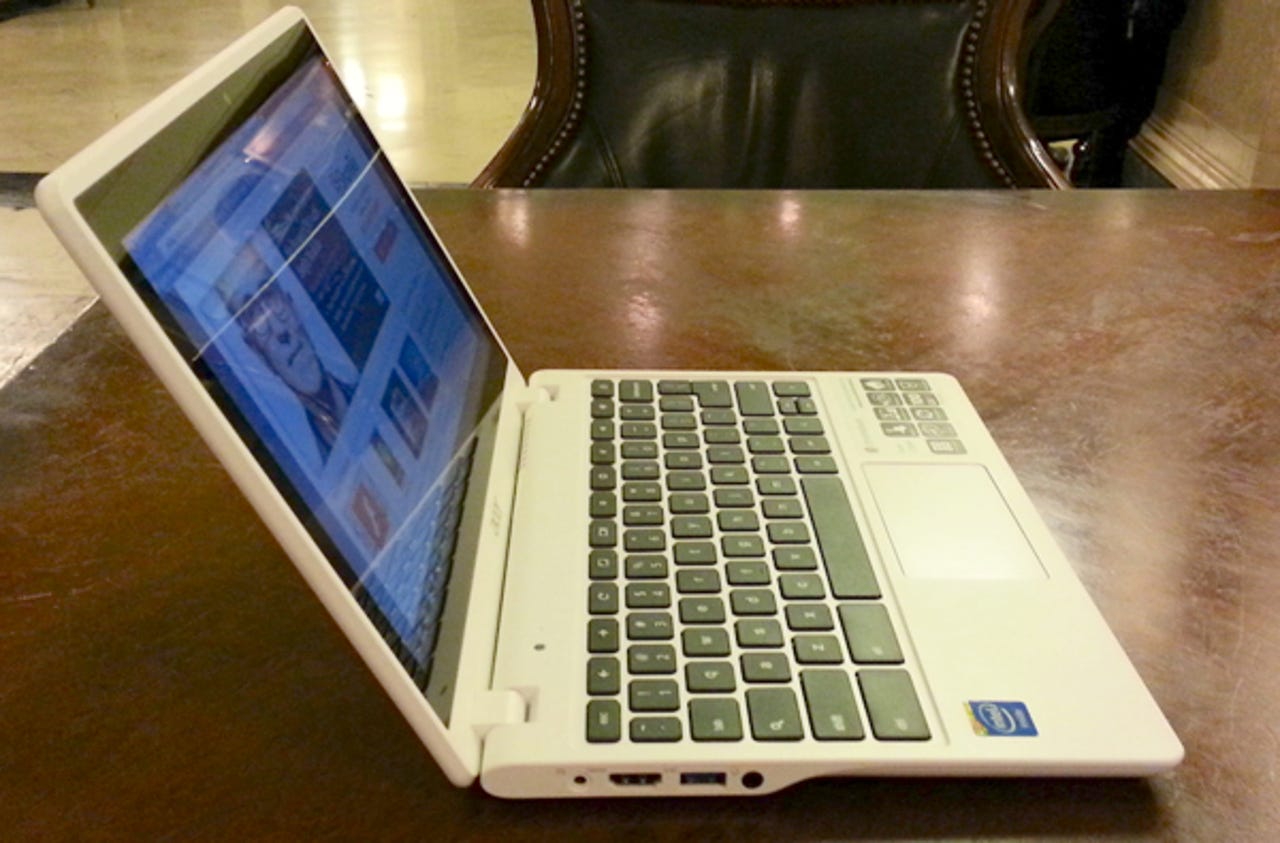Cheap Windows laptops: One area they can't compete with Chromebooks

Those unwilling to believe that Microsoft is not concerned with the competition from Chromebooks better adjust their thinking. The company has been targeting the cheap laptops running Google’s OS since the early days of its Surface tablets. It is now pushing the building of cheap ($200) Windows laptops to go head-to-head with the Chromebook.
There’s good reason for the folks in Redmond to be worried about the Chromebook. They are cheap and making inroads into the vital education market. Selling laptops is important to the industry where they buy in bulk and are training the computer buyer of the future in the systems they will look to down the road.
When a Chromebook stops working, whether through rough handling by students or simple failure, Google replaces it with another.
The education sector may be a target for these cheap Windows laptops. As reported by ZDNet’s Steve Ranger, HP will soon launch its Stream Windows laptop that should cost around $199. It is including 200GB of cloud storage with the purchase.
That’s well and good, but it still falls short of what schools get with Chromebook deployments. In a recent article about how Chromebook deployments in schools is ramping up, one of the school district employees behind a successful program summed up why the Chromebook makes more sense than Windows:
"The affordability and easy maintenance of Chromebooks clinched the deal – we could buy three Chromebooks for the price of a single desktop computer and the district’s small IT team wouldn’t have to struggle to keep up with the repairs and updates on aging PCs.”
That’s it in a nutshell — deploying Chromebooks to schools removes expensive support from the equation. School districts with Chromebooks don’t have to worry about supporting the OS and updates are handled automatically without issues. Even though Windows 8 is probably the easiest version of Windows yet, many users still require regular support. Tech-savvy users who have to support friends and family will admit that’s the case.
Perhaps most importantly, school personnel don’t have to worry about hardware maintenance. When a Chromebook stops working, whether through rough handling by students or simple failure, Google replaces it with another. This is a tremendous advantage that the Chromebook has over Windows laptops. It makes it easy for school districts to put a fixed cost on the deployment, a crucial component of IT costs in cash-strapped organizations.
It’s a good thing for Microsoft to get behind cheap laptops to compete with Chromebooks, especially in schools. It’s going to take more than cheap laptops with Windows to do so, however. There will have to be turn-key programs like that from Google with Chromebooks to remove the cost and concerns of hardware and software maintenance. All for a low price schools are able to pay.
Additional Chromebook coverage:
